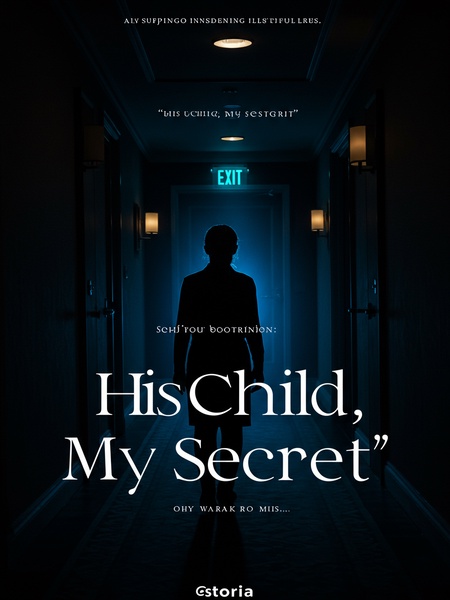Chapter 1: The Homecoming
I waited in the suffocating heat, sweat gluing my dress to my skin, heart thumping so hard it felt like it wanted out. The air inside the capitol building was thick—fluorescent lights flickering over cheap linoleum, the faded state flag drooping on the walls. In the third year of my arranged marriage, Caleb Price finally came to take me home.
The late-summer humidity pressed down, carrying the scent of scorched grass and gasoline through the corridors. Caleb stared at my swollen belly, hatred twisting his features, jaw clenched so tight I could see the veins. For a moment, I thought he might just turn and leave me there.
"Who’s the father?" His voice was low, raw—cutting through the stale air.
"How should I know? You think I kept a list?" I shot back, sharp and defensive, daring him to believe anything worse than the truth.
He snapped. The silence between us buzzed, nearly electric. The flickering light overhead stuttered again. A siren wailed somewhere outside—too late for either of us now.
Outside the hall, the crowd churned restlessly. The noise was relentless: the diverse faces of Silver Hollow pressed together, smartphones raised, local news vans double-parked at the curb, the scent of food trucks drifting on Main Street. The U.S. Army had already stormed into the capitol, the tension as thick as the heat.
Maybe tonight, I’d finally be spared from lying beneath a stranger. Maybe I could sleep without a lock on my door, without dreading whoever might come for me in the dark.
Caleb squared his shoulders. "Governor Price, reporting as ordered. Welcome home, Natalie."
He stood in a crisp white dress shirt, a ceremonial saber at his side—a relic from the governor’s office, more for show than war.
He looked like he belonged in a faded photograph, not in this flickering, government building. His eyes were cold, but behind them I caught a flicker of something wounded, something human he wouldn’t let me see.
I realized then how the wind had swept across these plains for so long, even my memories felt stripped and ghostly. The prairie was emptiness, and so was I.
I rose slowly, feeling every eye on my belly.
Caleb’s gaze never left it. His voice was tight: "Who’s the father?" His knuckles whitened on the saber’s hilt—a nervous tick he couldn’t hide.
Disgust surged through me. "Could be the old chief, the young chief, some councilman. Take your pick."
I saw the accusation in his eyes, but the truth was a luxury I couldn’t afford. Lies were armor—ugly, but they kept me safe. Let him believe what he wanted; it was easier than letting him close enough to hurt me again.
His expression iced over. He turned and strode out, boots echoing—an American rhythm, not a prairie drum. He belonged to the city now, all sharp edges and law books.
Outside, men screamed in the chaos. The air was thick with blood and fear, like those protest riots I used to watch on late-night TV—the kind that promised change, but always threatened to swallow you whole.
He came back in plain clothes, blood streaked across his face, as if the stains were a badge he had to wear. He handed me a bowl of medicine.
"You’re bringing back something you shouldn’t. People might get the wrong idea."
I took it, drinking in one gulp. The taste was sharp, chemical, almost metallic. My stomach lurched, but I forced it down and kept my face blank.
"As long as you don’t misunderstand, I don’t care what anyone else thinks."
Pain twisted in my lower belly, heavy and cold. They brought in basins of hot water, one after another. The nurses in their stiff scrubs wouldn’t meet my eyes. Everything was clinical, sanitized—American to the core.
But I couldn’t cry. My tears were gone. I stared at the ceiling, tracing the cracks, counting my breaths, telling myself it would be over soon.
Continue the story in our mobile app.
Seamless progress sync · Free reading · Offline chapters